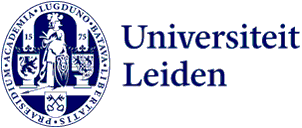
How a region's contradictions shaped Boris Kowalski's career
Sometimes student life merges rather smoothly into a working adult life. This is the case for Boris Kowalski. At International Studies, he chose Russian as his language and Eurasia as his region of specialisation, he obtained his Master’s degree at Oxford in Russian and Eurasian studies, ended up in Ukraine during the presidential elections and now he works at a think tank in Poland, where he can put into practice everything he has learned. ‘The region’s internal contradictions appeal to me the most.’
Despite his Polish roots, Kowalski did not know much about the region he chose. Eurasia consists of Europe, Russia, Ukraine and other former Soviet countries. During his studies, the numerous contradictions within the region piqued his interest. ‘Its history is more complicated than we in the West think. It’s always being presented as if it blends seamlessly into each other, but it does not. I think that is what interests me about it. Russia, for example, because of its communist past and all the developments of the past thirty years on top of that, is still very bureaucratic, but the streets show Soviet flats interspersed with very 21st-century business centres.’
Election observer in Ukraine
Inspired by a passionate teacher, Kowalski encountered similar contradictions during the 2019 presidential elections in Ukraine, where he was an election observer through a student organisation. ‘That teacher who went to Belarus as an election observer told funny stories about it. For example, five people had voted halfway the day. During a quiet moment he decided to go on a small break, and when he came back, suddenly five hundred people would have had voted.’
In Ukraine, too, things went crazy from time-to-time Boris recalls. ‘You read about this in your studies and then you suddenly see the practical problems in real life. For example, there was absolutely no mutual trust between people and the observers. The observers demanded to see every ballot. The names of the ballot papers also had to be read, but in Ukraine they speak both Russian and Ukrainian. The difference in pronunciation was sometimes just one letter. So you can imagine how much longer it took to pronounce all those names. This made the counting process very slow.’
Working in Poland
After obtaining his master's degree in Russian and East European Studies in Oxford - his hunger for learning about the region had not yet been satisfied – Upon graduation, Kowalski started an internship at the German Marshall Fund, an American think tank in Warsaw, the capital of Poland. A friend of his pointed out the internship. ‘The internship fit in well with my studies. It was also about a part of Eastern Europe that I didn't know much about.” After his internship, he was allowed to stay as a junior programme manager. In his work he has benefited from being able to place events in a larger context, as students learn in International Studies. "This helped me to more easily make connections and draw conclusions.’
‘As an outsider, you have to take the country's sentiments into account’
In his current job, Kowalski frequently works with Polish Members of Parliament who have foreign and security policies in their portfolio. Boris organises seminars with guest speakers from the United States and Germany. ‘Polish politics are very polarised but the unique thing about our work is that we still get everyone around the table.’ As an outsider, he needs to take the sentiments of the country into account in his work. ‘That is what you learn at International Studies, and I apply those skills here every day’
'Build your own story'
For Boris, his studies and career played out the way they did due to his strong interest in a region. His advice to current students would be to figure out why they are interested in something. ‘If you do the things you like, you build your own story, get active”. In addition, I also helped organise the TEDx-conference in Leiden. There I learned how to work in a team and to carry responsibility. You can use these kinds of experiences in job applications. Also, get your friends involved to help you find a job, this is how I found my internship. “If you do all this, everything will be just fine.’

